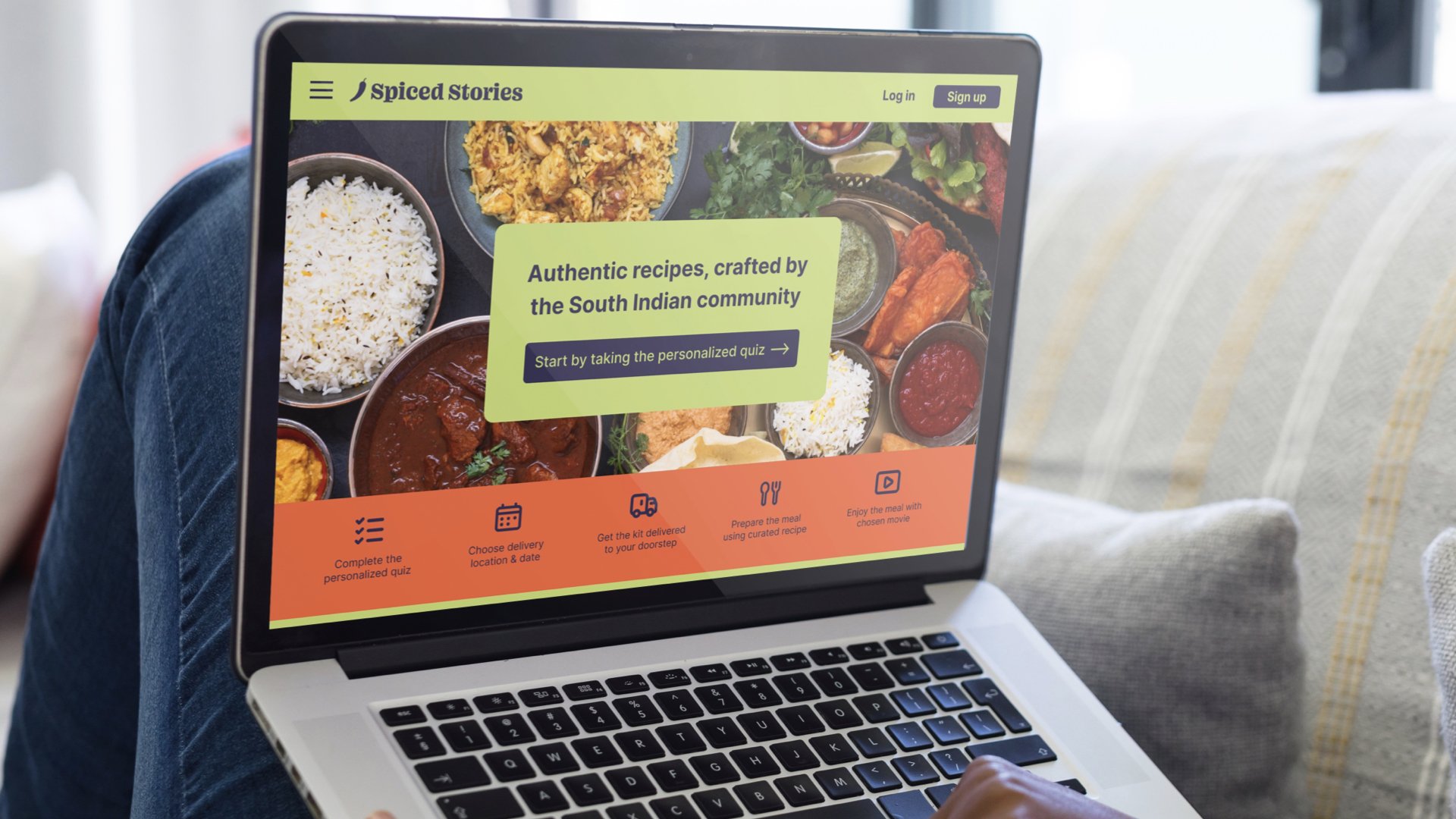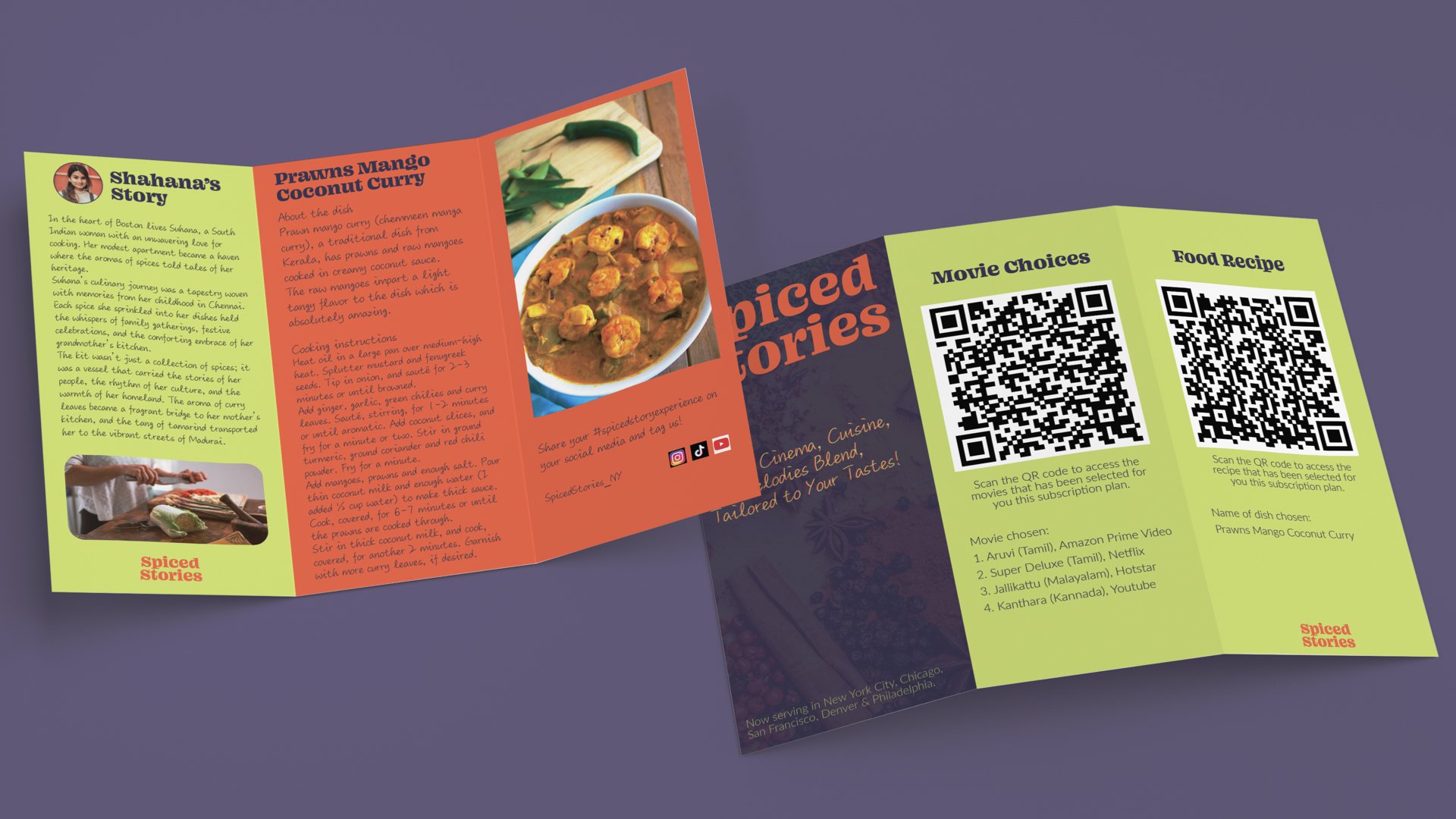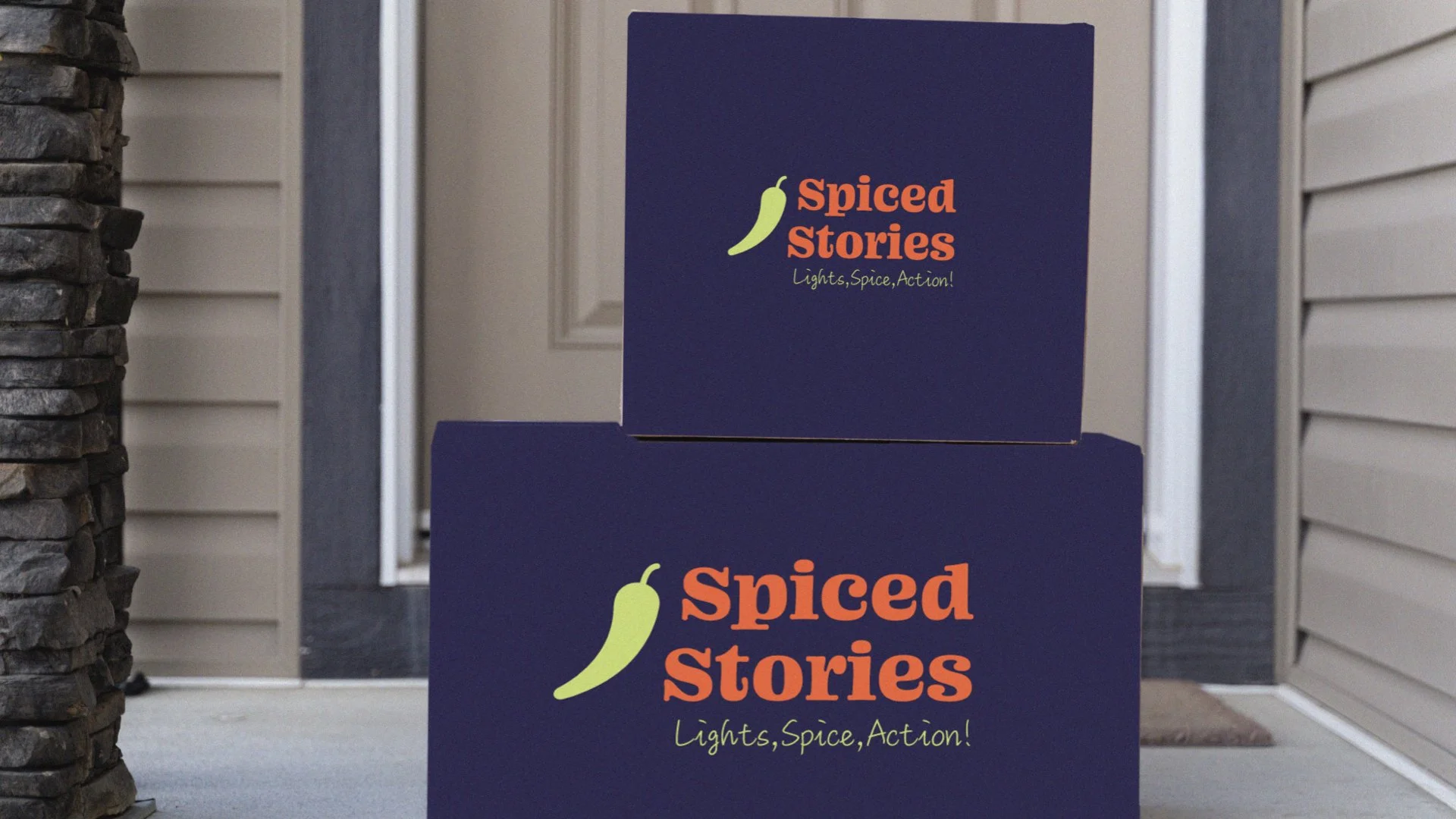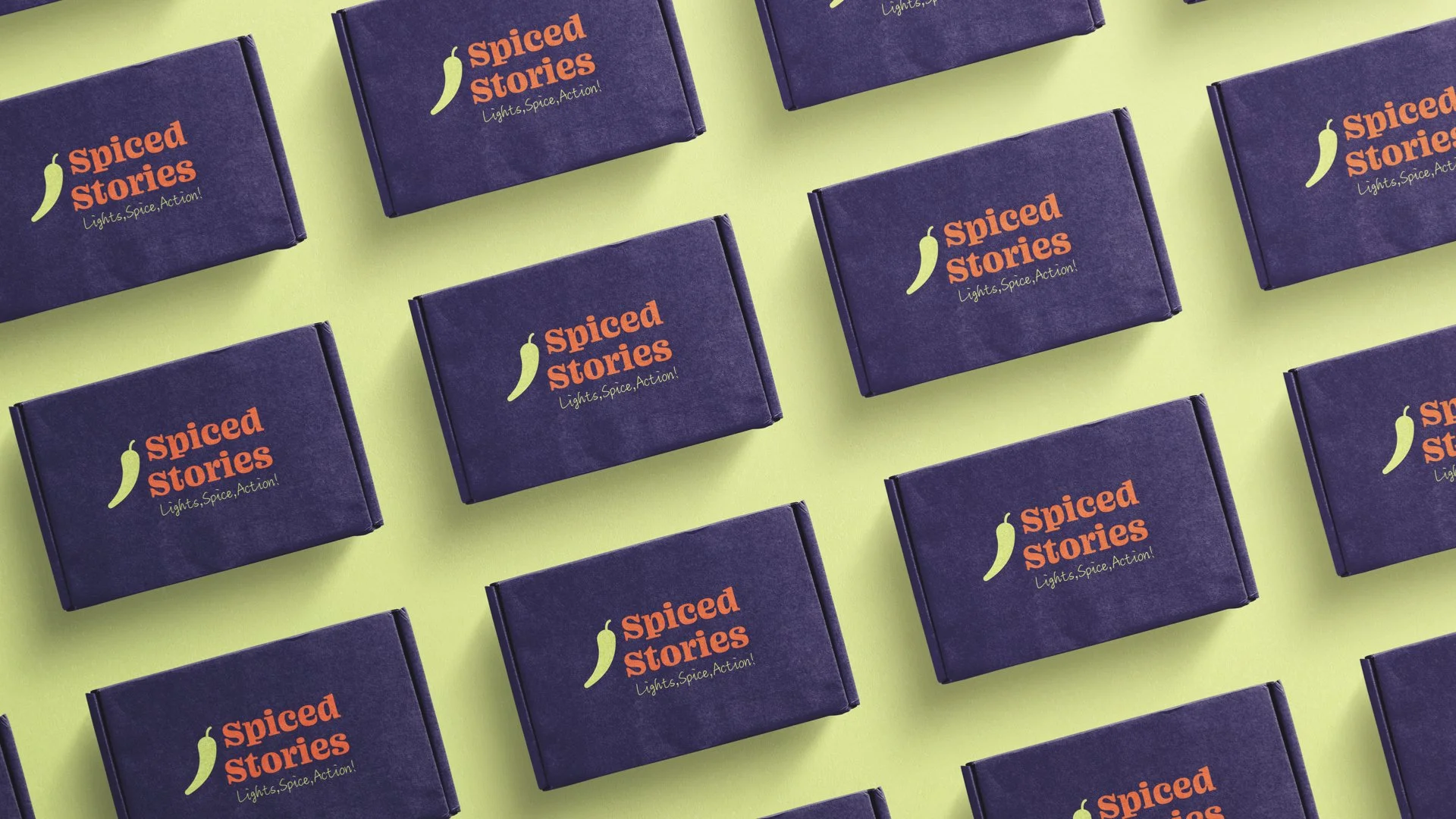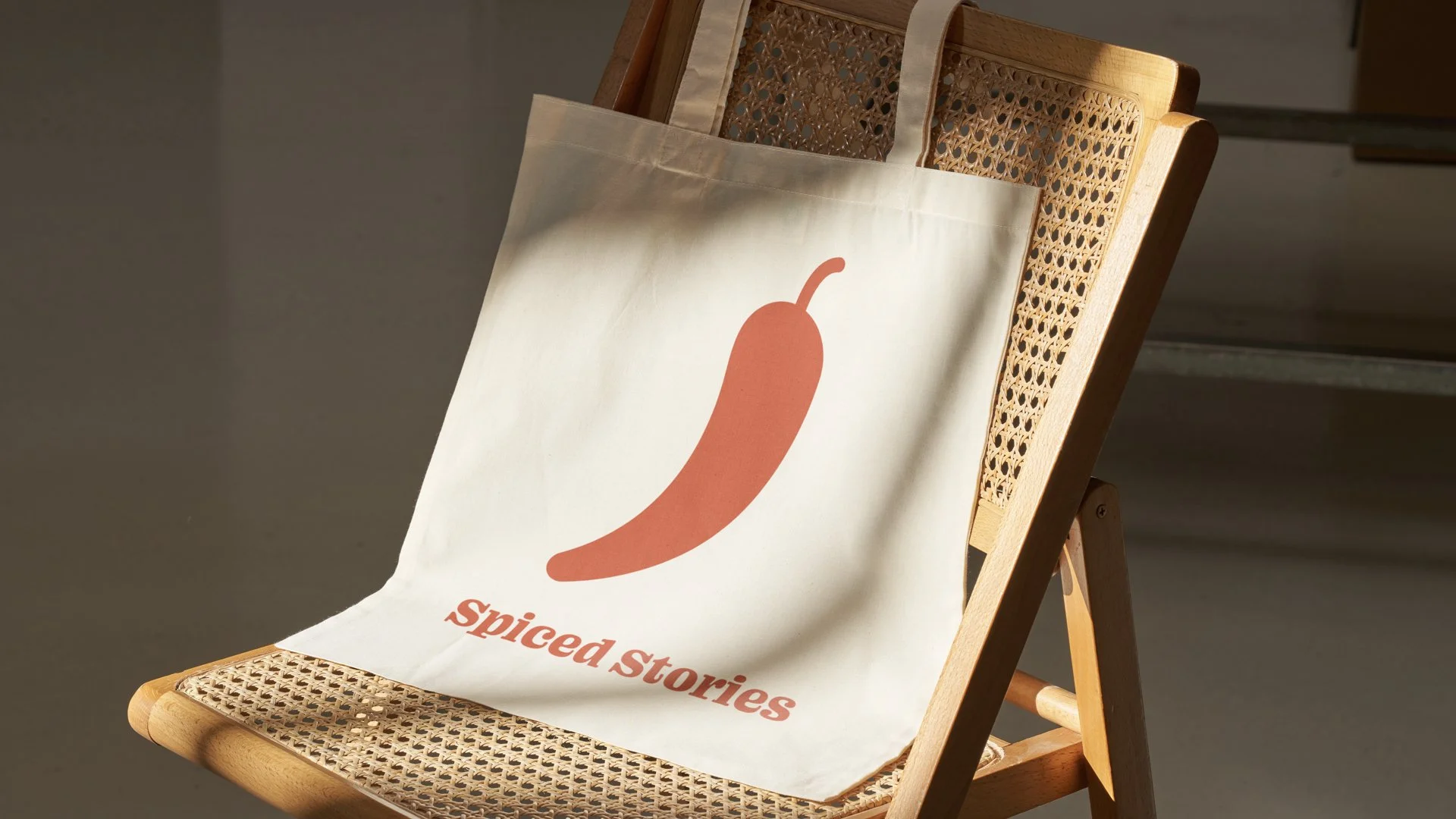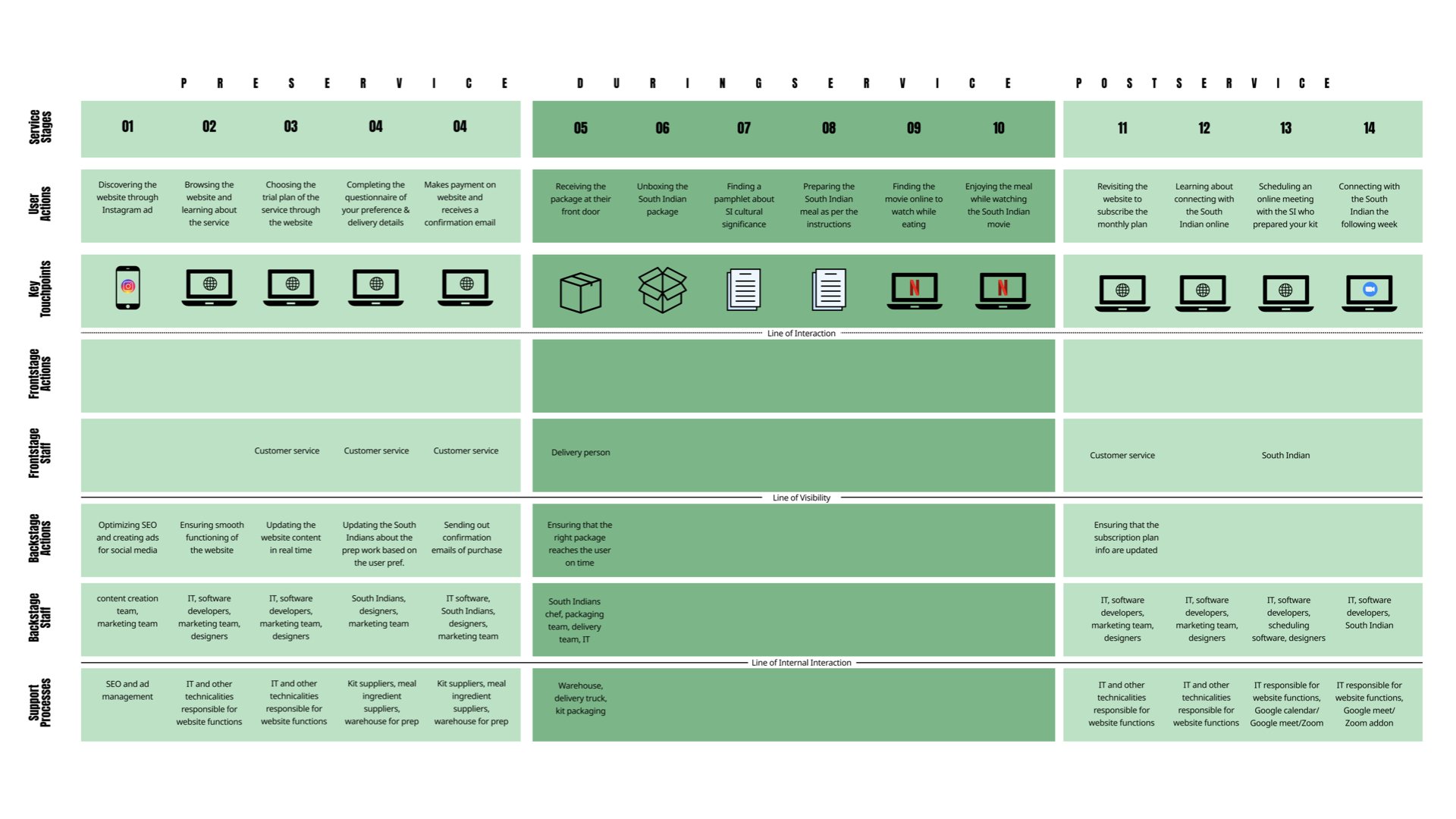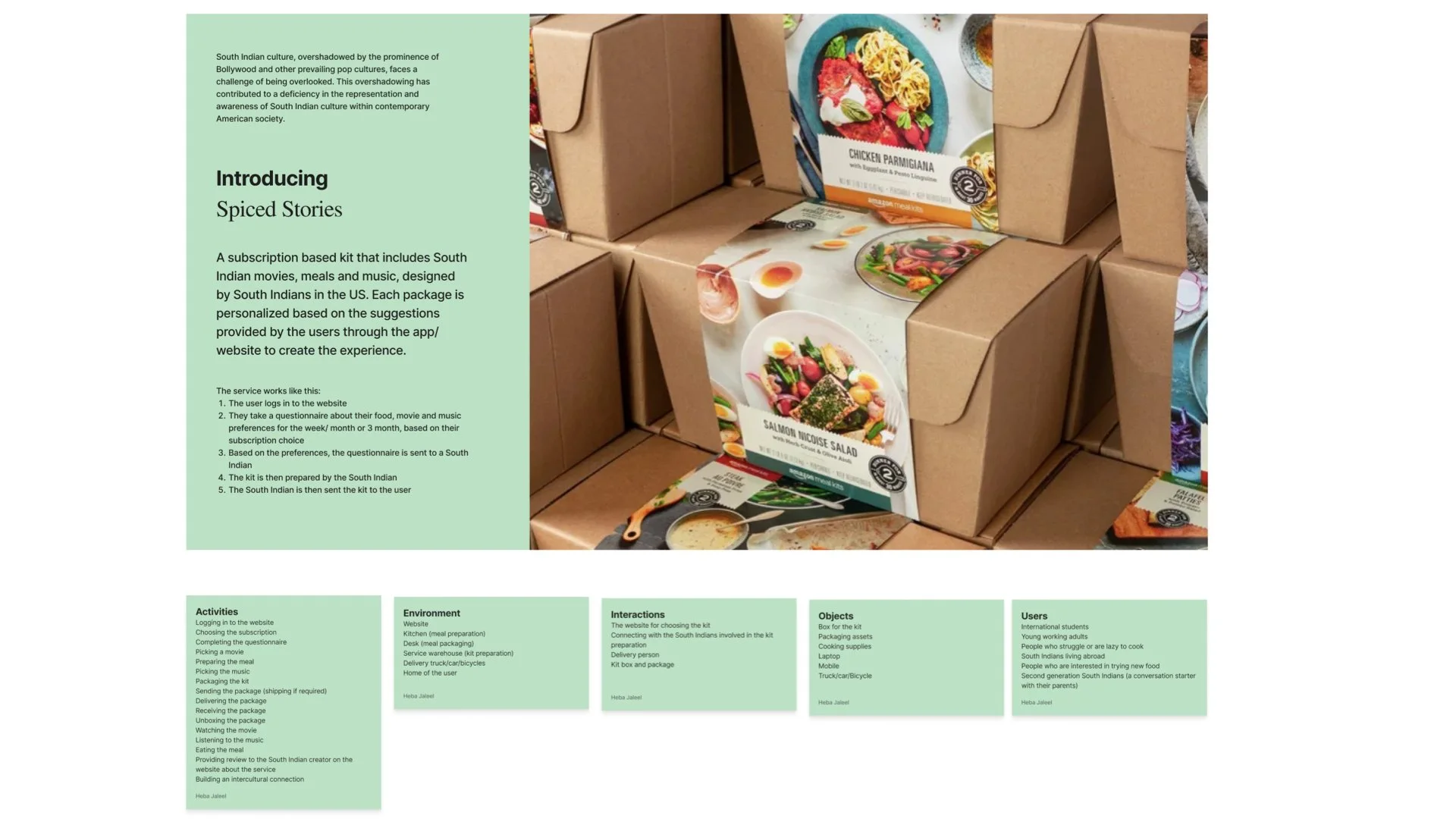
Spiced Stories: Bringing South Indian Flavors to Your Doorstep
Spiced Stories is a subscription-based kit that offers a unique twist on the classic dinner-and-a-movie experience by seamlessly blending the richness of South Indian movies with delectable meal recipes crafted by the South Indian community in the United States. Designed as part of Heba Jaleel's thesis, We Too Belong Here: Uniting and Strengthening South Indians through Community Collaboration, the project targets young adults aged 18 to 34, including both working individuals and international students in New York, catering to a market hungry for authenticity and connection.
“The value proposition for Spiced Stories was clear: to provide a diverse range of affordable South Indian dishes and make them accessible to our community.”
The Spiced Stories subscription service also serves second-generation South Indians and those feeling homesick, providing a comforting link to their heritage. "It is a South Indian twist on dinner and a movie," says Heba, who saw an opportunity in the limited diversity of South Indian culinary options in the U.S. Spiced Stories empowers the South Indian community by instilling a sense of belonging and building a new, collaborative community, all while offering personalized experiences based on individual preferences gathered through user suggestions on the website.
Food is a powerful connector to culture, instilling pride and a sense of belonging within individuals. Yet, the South Indian culinary landscape in the U.S. remains sparse and lacks variety in its menu offerings. Heba says this gap inspired the creation of Spiced Stories. She envisions a world where the South Indian diaspora in the U.S. feels empowered and united through shared stories, memories, and flavors.
Who is it for?
The Spiced Stories service was created for a market that is hungry for authenticity and connection: young adults between the ages of 18 and 34, which in New York alone constitutes 2.5M people. It includes both working individuals and international students. Heba designed Spiced Stories specifically for South Indians, both second generation and recent immigrants who are homesick for their own cultural traditions, in order to help them feel closer to home.
“The Spiced Stories kit will be conveniently delivered right to your doorstep. Inside the box, you'll find all the ingredients necessary to whip up the meal of your choice, accompanied by a handy recipe brochure. What's more, we've included a QR code on the brochure, granting you instant access to both the recipe and specially curated movie recommendations.”
How does it work?
Each package is meticulously personalized based on user preferences, collected through a detailed quiz on the Spiced Stories website. This quiz covers culinary inclinations, such as spice tolerance, dietary restrictions, cooking comfort level, and cinematic tastes, including genre preferences, mood, and desired movie length. Following completion of the quiz, users can easily log in or sign up and select from our flexible subscription plans, including weekly, monthly, and quarterly options. For added convenience, users can opt for a trial kit before committing to a subscription. The final step entails selecting the desired delivery date and location, ensuring a seamless experience from start to finish.
Process & Research
The idea for Spiced Stories was sparked by a poignant interview with a South Indian immigrant, who shared their struggle with accessing beloved foods in New York City. “I had to give up my favorite dishes because they were either inaccessible or too expensive,” the interviewee revealed. This conversation highlighted the broader challenges the South Indian community faces in finding authentic cuisine and cultural representation in the city.
Through in-depth research and market analysis, it became apparent that while South Indian restaurants were available, they often offered limited options and were costly. “I realized that there was a significant gap in the market,” says Heba. “The value proposition for Spiced Stories was clear: to provide a diverse range of affordable South Indian dishes and make them accessible to our community.”
The development of Spiced Stories involved creating a detailed service blueprint that outlined the entire customer journey. “Mapping out every touchpoint and component of the service was crucial,” Heba explains. This approach provided valuable insights into how to effectively meet the needs of the audience, identify areas for improvement, and refine the processes to ensure a seamless experience.
Heba says the project navigated a series of successes and hurdles that underscore the challenges of launching a unique product in a crowded market. One major issue was distinguishing the service from other meal kits, a task that demanded extensive research and creative strategy. Despite this, the project received a strong positive response from users, who were excited about the opportunity to experience authentic South Indian cuisine and cultural immersion. This enthusiastic feedback confirmed the concept's market potential and provided valuable lessons in market research, business modeling, and customer engagement.
To learn more about Heba Jaleel's work, take a look at the other thesis projects that make up We Too Belong Here: Uniting and Strengthening South Indians through Community Collaboration. Find more of her design work at hebajalil14.myportfolio.com.

